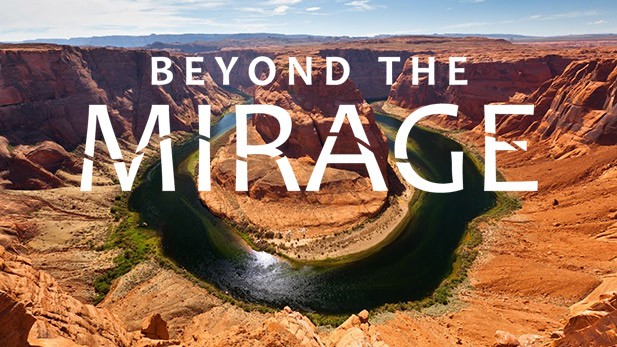There is a water shortage threatening the western United States right now, but filmmaker Cody Sheehy, the UA College of Agriculture and Life Sciences and the Water Resources Research Center are trying to help the issue.
A production from Arizona Public Media, UA CALS and WRRC called “Beyond the Mirage: The Future of Water in the West” is hoping to find solutions and educate the public on the water crisis.
The documentary looks at the water shortage coming to the West, the future of water and what can be done to help.
It has been shown at the Loft Cinema and on PBS multiple times throughout the month in both Tucson and Phoenix, thanks to AZPM.
California has been featured in headlines for its water shortage, but the other side of that problem is the water shortage affecting every state in the Colorado River Basin, including Arizona.
The documentary delves into new technologies for water conservation and challenges old ideas about water.
Desert cities face trouble finding reliable water. The Colorado River is a large source of the water consumed and used in the western states. The challenge lies in the competition between these states as they fight for the water. Some solutions presented in the documentary come from surprising sources.
Israel has been a leader in water conservation innovation since the 1950s. With an arid climate and scarce naturally occurring water, access to water was vital to the growth of Israel’s population and economy. It faced many similar problems the West is currently dealing with.
Israel was able to overcome their water scarcity through technological innovation and can now provide insight on how to deal with water issues.
The film also discusses China, providing solutions to current water issues which the country has navigated.
A large problem lies in residents’ perception of water resources. People feel water is endless and readily available when a faucet is turned on, but this is only contributing to the problem. While Arizona residents can easily obtain any water they desire at a relatively low cost, this level of water usage is unsustainable.
There is no easy answer when it comes to water conservation. Many options for water resources are available, including conservation, reusing of wastewater or desalination of ocean water, but it could be that a combination of these is needed to meet the water needs of the western U.S.
All potential solutions have tradeoffs and an open dialogue could be necessary to determine the course of action to be taken.
Sheehy’s goal with “Beyond the Mirage” is to educate the public about water conservation and get viewers involved in the political aspects of water conservation. He is also connecting people with the issues in a personal way, using the “Beyond the Mirage” web experience.
Anybody is capable of making their own water documentary on the website. People can chose from 300 professionally filmed clips talking about a variety of topics including groundwater laws, Israel’s fight to secure water, news clips of the water crisis and interviews with professionals about water in the West.
The “Beyond the Mirage” web experience allows you to create your own documentary the way you want and encourages you to share your movie with others who can also make their own water documentaries.
Creating a water documentary and encouraging others to do the same is a step in the right direction in regard to education and involvement. The “Beyond the Mirage” website helps to open a discussion about what’s coming and what we can do about the water problems challenging the West.
Follow Bailey Bellavance on Twitter.









